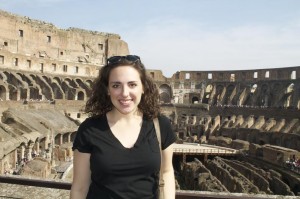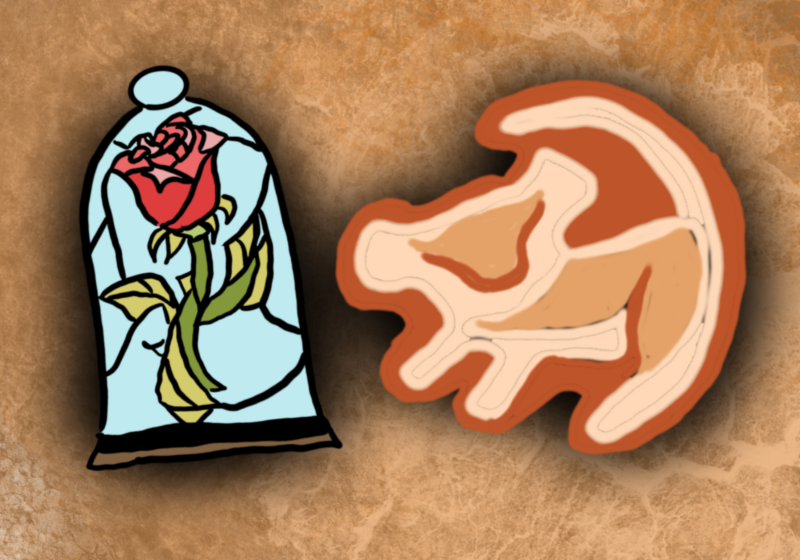 Last semester, I studied Italian language and culture in the beautiful, bustling city of Rome, Italy with the Institute for the International Education of Students (IES Abroad). While my adventure abroad officially began in February, my preparation for life in the Eternal City began more than a year before.
Last semester, I studied Italian language and culture in the beautiful, bustling city of Rome, Italy with the Institute for the International Education of Students (IES Abroad). While my adventure abroad officially began in February, my preparation for life in the Eternal City began more than a year before.
It is no surprise that a semester, year, or summer abroad takes an immense amount of planning and important decision-making. Where and when do I want to go? Does UR offer a program in that country? Will I get credit and financial aid? Can I make it all work? These are all questions I asked myself before selecting my specific study abroad program.
In any situation, planning an experience abroad is a difficult and lengthy process. In my case, I wanted to study something completely unrelated to my major (Biology) in a non-English speaking country. To add to the challenge of selecting the right program, my bank account had seen better days.
Choosing to study in Rome, however, ended up being a simple decision after I took a UR summer course in Italy and fell in love with “la dolce vita.” But this time around, I wanted to experience Italian culture on a deeper level.
As an Italian minor, I wanted to be immersed in the language in hopes of becoming fluent. Yet, as a biology major, I thought it would be impossible to study abroad for a whole semester without having to overload in the future. I eventually learned, however, that with great determination, a lot of help from academic advisers, and a generous scholarship, going abroad can become a reality for any student.
Here are some things to keep in mind to help make your study abroad aspirations attainable:
Plan Early:
I began planning to go abroad while I was a sophomore and still had some flexibility in my four-year schedule. Many people throughout the University were ready and willing to help me put everything in order.
Making an appointment with an advisor is the first step to exploring the myriad study abroad programs and scholarships available to UR students. The Center for Study Abroad is an invaluable resource that should be used early and often.
My advisor gave me information about programs to fit my needs and helped me navigate the application processes for my program, scholarships, and student visa.
Advisors in specific academic departments also helped me schedule my degree requirements in a way that permitted studying abroad. I had to shuffle my schedule around to squeeze in all my degree requirements, but I made it work.
Think outside the box:
For me, that “box” was my major. Studying abroad in a non-English speaking country meant that finding a program that would allow me to study biology would be difficult.
Instead of focusing on the requirements for my major, I began considering other ways that a semester abroad might contribute to my course plan.
Studying in Italy allowed me to earn credit towards my Italian cluster (which eventually became my Italian minor).
With the University’s cluster curriculum, I found I had a lot of freedom in designing my academic plan. Choosing a cluster in a foreign language allowed me to stay on track with my degree requirements even while taking a semester off from biology. Clusters are an excellent way to efficiently incorporate studying abroad into any course of study.
Explore Financial Aid Options:
It is a common misconception that studying abroad will break the bank. My UR financial aid package transferred to my program and I received need-based aid directly from IES.
There are also plenty of outside scholarship opportunities to explore. I was awarded the Benjamin A. Gilman International Scholarship, sponsored by the U.S. Department of State. The Gilman Scholarship is open to all college students who receive a Federal Pell Grant.
The competitive scholarship is designed to benefit students studying in non-traditional study abroad locations and who are underrepresented in education abroad programs. Awards of up to $5,000 can help with the cost of tuition, room and board, airfare, local transportation, and books.
The Gilman Scholarship made all the difference in making my semester in Rome affordable. In addition to supplementing my tuition, the scholarship allowed me to live comfortably in Rome and explore other parts of Italy..
Going abroad will undoubtedly change your life and significantly impact your academic, professional, and personal goals. No other experience will be as infinitely challenging and infinitely rewarding as leaving the comforts of home and spending time abroad. If you truly possess a passion travel, any academic or financial hurdle can be overcome. There are numerous resources to help you create your unique experience abroad – you just have to know where to look.
Ball is a member of the class of 2015.





